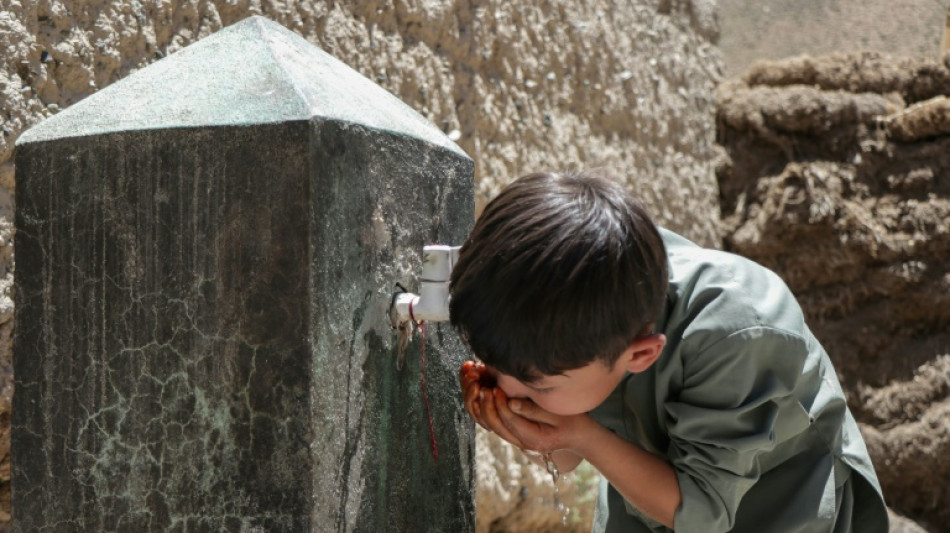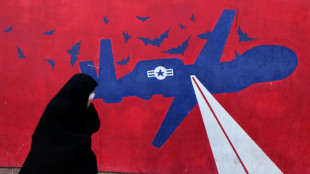
-
 Vonn to provide injury update as Milan-Cortina Olympics near
Vonn to provide injury update as Milan-Cortina Olympics near
-
France summons Musk for 'voluntary interview', raids X offices

-
 Stocks mostly climb as gold recovers
Stocks mostly climb as gold recovers
-
US judge to hear request for 'immediate takedown' of Epstein files

-
 Russia resumes large-scale strikes on Ukraine in glacial temperatures
Russia resumes large-scale strikes on Ukraine in glacial temperatures
-
Fit-again France captain Dupont partners Jalibert against Ireland

-
 French summons Musk for 'voluntary interview' as authorities raid X offices
French summons Musk for 'voluntary interview' as authorities raid X offices
-
IOC chief Coventry calls for focus on sport, not politics

-
 McNeil's partner hits out at 'brutal' football industry after Palace move collapses
McNeil's partner hits out at 'brutal' football industry after Palace move collapses
-
Proud moment as Prendergast brothers picked to start for Ireland

-
 Germany has highest share of older workers in EU
Germany has highest share of older workers in EU
-
Teen swims four hours to save family lost at sea off Australia

-
 Ethiopia denies Trump claim mega-dam was financed by US
Ethiopia denies Trump claim mega-dam was financed by US
-
Norway crown princess's son pleads not guilty to rapes as trial opens

-
 Russia resumes strikes on freezing Ukrainian capital ahead of talks
Russia resumes strikes on freezing Ukrainian capital ahead of talks
-
Malaysian court acquits French man on drug charges

-
 Switch 2 sales boost Nintendo profits, but chip shortage looms
Switch 2 sales boost Nintendo profits, but chip shortage looms
-
China to ban hidden car door handles, setting new safety standards

-
 Switch 2 sales boost Nintendo results but chip shortage looms
Switch 2 sales boost Nintendo results but chip shortage looms
-
From rations to G20's doorstep: Poland savours economic 'miracle'

-
 Russia resumes strikes on freezing Ukrainian capital
Russia resumes strikes on freezing Ukrainian capital
-
'Way too far': Latino Trump voters shocked by Minneapolis crackdown

-
 England and Brook seek redemption at T20 World Cup
England and Brook seek redemption at T20 World Cup
-
Coach Gambhir under pressure as India aim for back-to-back T20 triumphs

-
 'Helmets off': NFL stars open up as Super Bowl circus begins
'Helmets off': NFL stars open up as Super Bowl circus begins
-
Japan coach Jones says 'fair' World Cup schedule helps small teams

-
 Equities and precious metals rebound after Asia-wide rout
Equities and precious metals rebound after Asia-wide rout
-
Do not write Ireland off as a rugby force, says ex-prop Ross

-
 Winter Olympics 2026: AFP guide to Alpine Skiing races
Winter Olympics 2026: AFP guide to Alpine Skiing races
-
Winter Olympics to showcase Italian venues and global tensions

-
 Buoyant England eager to end Franco-Irish grip on Six Nations
Buoyant England eager to end Franco-Irish grip on Six Nations
-
China to ban hidden car door handles in industry shift

-
 Sengun leads Rockets past Pacers, Ball leads Hornets fightback
Sengun leads Rockets past Pacers, Ball leads Hornets fightback
-
Waymo raises $16 bn to fuel global robotaxi expansion

-
 Netflix to livestream BTS comeback concert in K-pop mega event
Netflix to livestream BTS comeback concert in K-pop mega event
-
Rural India powers global AI models

-
 US House to vote Tuesday to end shutdown
US House to vote Tuesday to end shutdown
-
Equities, metals, oil rebound after Asia-wide rout

-
 Bencic, Svitolina make history as mothers inside tennis top 10
Bencic, Svitolina make history as mothers inside tennis top 10
-
Italy's spread-out Olympics face transport challenge

-
 Son of Norway crown princess stands trial for multiple rapes
Son of Norway crown princess stands trial for multiple rapes
-
Side hustle: Part-time refs take charge of Super Bowl

-
 Paying for a selfie: Rome starts charging for Trevi Fountain
Paying for a selfie: Rome starts charging for Trevi Fountain
-
Faced with Trump, Pope Leo opts for indirect diplomacy

-
 NFL chief expects Bad Bunny to unite Super Bowl audience
NFL chief expects Bad Bunny to unite Super Bowl audience
-
Australia's Hazlewood to miss start of T20 World Cup

-
 Bill, Hillary Clinton to testify in US House Epstein probe
Bill, Hillary Clinton to testify in US House Epstein probe
-
Cuba confirms 'communications' with US, but says no negotiations yet

-
 Iran orders talks with US as Trump warns of 'bad things' if no deal reached
Iran orders talks with US as Trump warns of 'bad things' if no deal reached
-
From 'watch his ass' to White House talks for Trump and Petro


1 in 4 people lack access to safe drinking water: UN
More than two billion people worldwide still lack access to safely-managed drinking water, the United Nations said Tuesday, warning that progress towards universal coverage was moving nowhere near quickly enough.
The UN's health and children's agencies said a full one in four people globally were without access to safely-managed drinking water last year, with over 100 million people remaining reliant on drinking surface water -- for example from rivers, ponds and canals.
The World Health Organization and UNICEF said lagging water, sanitation and hygiene (WASH) services were leaving billions at greater risk of disease.
They said in a joint study that the world remain far off track to reach a target of achieving universal coverage of such services by 2030.
Instead, that goal "is increasingly out of reach", they warned.
"Water, sanitation and hygiene are not privileges: they are basic human rights," said the WHO's environment chief Ruediger Krech.
"We must accelerate action, especially for the most marginalised communities."
The report looked at five levels of drinking water services.
Safely managed, the highest, is defined as drinking water accessible on the premises, available when needed and free from faecal and priority chemical contamination.
The four levels below are basic (improved water taking less than 30 minutes to access), limited (improved, but taking longer), unimproved (for example, from an unprotected well or spring), and surface water.
- Drinking of surface water declines -
Since 2015, 961 million people have gained access to safely-managed drinking water, with coverage rising from 68 percent to 74 percent, the report said.
Of the 2.1 billion people last year still lacking safely managed drinking water services, 106 million used surface water -- a decrease of 61 million over the past decade.
The number of countries that have eliminated the use of surface water for drinking meanwhile increased from 142 in 2015 to 154 in 2024, the study said.
In 2024, 89 countries had universal access to at least basic drinking water, of which 31 had universal access to safely managed services.
The 28 countries where more than one in four people still lacked basic services were largely concentrated in Africa.
- Goals slipping from reach -
As for sanitation, 1.2 billion people have gained access to safely managed sanitation services since 2015, with coverage rising from 48 percent to 58 percent, the study found.
These are defined as improved facilities that are not shared with other households, and where excreta are safely disposed of in situ or removed and treated off-site.
The number of people practising open defecation has decreased by 429 million to 354 million 2024, or to four percent of the global population.
Since 2015, 1.6 billion people have gained access to basic hygiene services -- a hand washing facility with soap and water at home -- with coverage increasing from 66 percent to 80 percent, the study found.
"When children lack access to safe water, sanitation, and hygiene, their health, education, and futures are put at risk," warned Cecilia Scharp, UNICEF's director for WASH.
"These inequalities are especially stark for girls, who often bear the burden of water collection and face additional barriers during menstruation.
"At the current pace, the promise of safe water and sanitation for every child is slipping further from reach."
Q.Najjar--SF-PST



